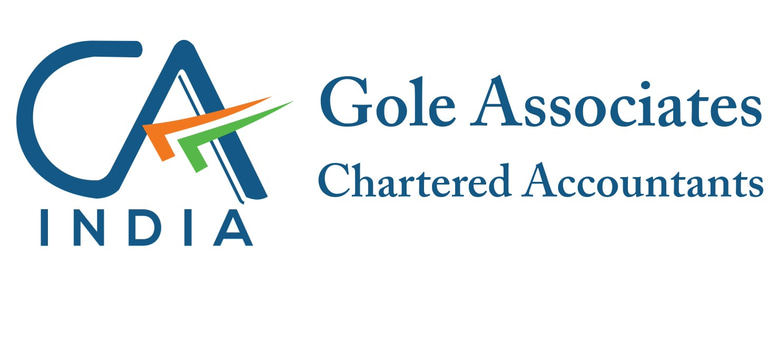GST Refunds in India: Understanding the Law and a Controversial New Ruling
This article delves into the legal and practical aspects of GST refunds in India, focusing on unutilized Input Tax Credit (ITC). It explains the statutory provisions under Section 54(3) of the CGST Act, including refunds under inverted duty structure and exports. The article also analyzes the recent Sikkim High Court ruling that allowed ITC refunds on business closure — a decision that has sparked significant debate. While the judgment is legally reasoned, the article presents a critical perspective on its potential misuse and whether it aligns with the fundamental principles of GST. Ideal for tax professionals, business owners, and policy watchers seeking clarity on GST refund eligibility and future implications.
GST


The Goods and Services Tax (GST) system in India is built on the principle of avoiding cascading taxes. To facilitate this, the concept of Input Tax Credit (ITC) plays a central role. ITC allows businesses to claim a credit for the GST paid on inputs (purchases), which can then be offset against GST liability on outputs (sales). But what happens when a business shuts down and has unutilized ITC left in its account? This exact question recently came before the High Court of Sikkim in a landmark judgment that could reshape refund claims on business closure.
1. Refund of ITC: What the Law Says
Under Section 54(3) of the CGST Act, refund of unutilized ITC is permitted only in two scenarios:
a) Inverted Duty Structure
When a business pays higher GST on inputs than it charges on outputs.
Example:
A textile manufacturer purchases raw cloth at 12% GST and sells stitched garments at 5% GST. Over time, this results in excess ITC, since the input tax rate is higher than the output tax rate. In such cases, the manufacturer can claim a refund of the unused credit.
b) Zero-Rated Supplies (Exports)
When goods or services are exported without charging GST, the exporter is still allowed to claim refunds of ITC paid on inputs.
Example:
A company exporting handmade candles may not collect GST on exports but would have paid GST on raw materials like wax and packaging. This ITC can be claimed as a refund.
In both these situations, the objective is to prevent tax accumulation where GST is not ultimately borne by the supplier.
2. The Sikkim High Court Ruling: Refund on Closure of Business
In WP(C) No. 54 of 2023, SICPA India Pvt. Ltd. claimed a refund of ₹4.37 crores in unutilized ITC after shutting down its manufacturing unit in Sikkim. The Assistant Commissioner and subsequently the Appellate Authority denied the refund on the basis that Section 54(3) permits refund only in two specific scenarios, and closure of business is not one of them.
The petitioner argued that Section 49(6) of the CGST Act provides for refund of any remaining balance in the Electronic Credit Ledger, once all dues are settled, and that this provision should not be overridden by Section 54(3).
The High Court ruled in favor of the petitioner, observing:
There is no express prohibition in the CGST Act against refunding ITC on business closure.
Retaining such credit without statutory authority would amount to unjust enrichment by the State.
Section 49(6) should be read harmoniously with Section 54.
“Although Section 54(3) of the CGST Act deals only with two circumstances where refunds can be made, the statute also does not provide for retention of tax without the authority of law.” – Justice Meenakshi Madan Rai
Accordingly, the Court set aside the appellate order and allowed the refund of the ₹4.37 crore ITC.
3. A Professional Concern: Why This Ruling May Be Problematic
While the judgment is legally sound on textual interpretation, it may not withstand appeal in the Supreme Court, for the following reasons:
GST is a destination-based, consumption tax, intended to be borne by the final consumer. Refund mechanisms exist only where tax has not been effectively passed on (such as exports or inverted structures).
Allowing refunds simply upon closure of business creates a potential loophole:
A person could register a business, accumulate ITC through large purchases, shut down, and claim refunds — without significant tax being paid on outward supplies.
This could pave the way for fraudulent refund practices and distort the fundamental GST chain.
4. Final Thoughts
The Sikkim High Court ruling introduces a significant precedent for refund of unutilized ITC on closure of business.
However, the structural integrity and intent of the GST framework may be compromised if such refunds are permitted without sufficient checks.
Legislative clarification or appellate review by the Supreme Court is likely in the future to resolve this conflict.
Key Takeaway
While refunds of ITC are generally limited to exports and inverted duty structures, the recent High Court ruling opens a third possibility — business closure. Professionals should exercise caution, as this development, though currently valid, may face further legal scrutiny.
